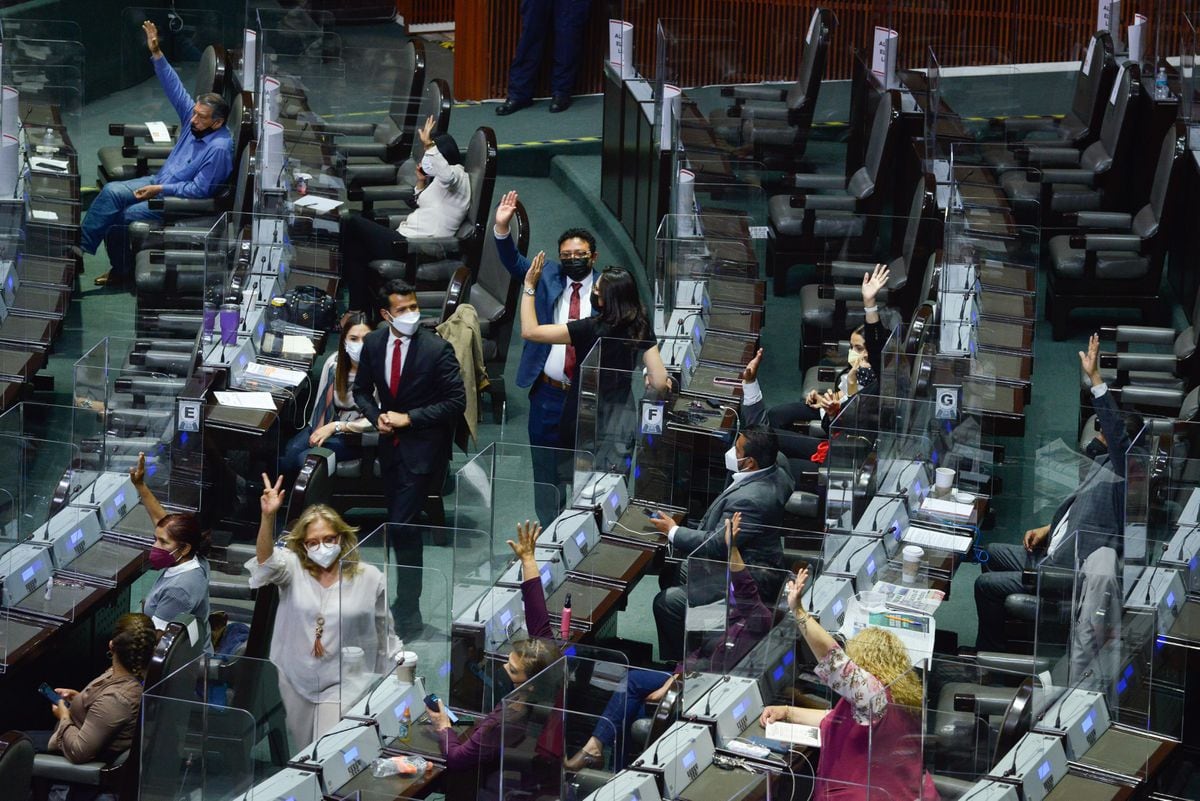A latent issue during the current Administration, the discussion on militarization in Mexico adds a new chapter to its history.
The Chamber of Deputies has approved the inclusion of the Armed Forces in the General Council for Scientific Research, Technological Development and Innovation, the body that defines government investments in the matter.
In the absence of the Senate ratifying the decision, the reform would open a new lane between military and public life, a highway of increasing amplitude.
Approved by a large majority, which includes Morena, the PRI or the PAN, the changes to the science law approved by the Chamber of Deputies modify the composition of the council, to add the heads of the Ministry of National Defense ( Sedena), General Luis Cresencio Sandoval, and the Secretary of the Navy (Semar), Admiral José Rafael Ojeda.
The discussion about the reform began in 2013, when the PRI had a majority in both chambers and the militarization of public life, although it was worrying, seemed limited to the sphere of public security.
The Senate voted for her in 2016 and she barely drew attention.
The deputy of the Citizen Movement Martha Tagle was then a senator and recalls that she voted in favor.
Now, already in the lower house, he has voted against.
"Then I did not give it as much importance, or I do not give it the importance that I give it now, in light of the circumstances," he explains.
More information
López Obrador gives more power to the Army: the Mayan Train will be military heritage
The circumstances that Tagle speaks of point to the growing role of the Army and Navy in the public life of the country, not only in matters of security, but in matters of public works and administration.
Since the arrival of Andrés Manuel López Obrador to the presidency, in December 2018, the Armed Forces have become a kind of multipurpose institution, which also serve as a template for the advent of a new security body, the National Guard, that of construction company of emblematic works of the six-year term, such as the Mayan Train or the branch network of the Banco del Bienestar.
"The logic of integrating the Armed Forces made sense then, because in the end they are part of the subsystem of centers that do research in Mexico: all higher education institutions, public, private, technological universities, etc.", explains Alma Maldonado, researcher of the National Polytechnic Institute (IPN).
"That is why the Senate voted yes," he adds.
“For me it is not enough justification, because in the end the research activities they do are not so relevant.
And also for a matter of trust.
The council should maintain the civil character ”.
Deputy Tagle, one of the 14 legislators who voted against - as opposed to the 426 who said yes - adds a concern: “Recently, Sedena accessed resources from the National Council of Science and Technology (Conacyt) for research.
Now that you are on the council, I have no doubt that they will try to access more of these funds.
The council is plural, because there are many dependencies there, but they, from that space, in this administration, are going to have more weight ”.
The new law
The foreseeable inclusion of the Armed Forces in the general council also occurs in the middle of the discussion on the new General Law of Humanities, Sciences, Technologies and Innovation.
In December, the Conacyt presented a draft law precisely at a council meeting.
The draft provides for the creation of a new "council of state", in charge of drawing up a "state agenda", the depository of priority research vectors for the state.
Maldonado, who is part of Procienciamx, a network that brings together dozens of researchers from different institutions and states in the country, points out that in the proposal, the Council of State is made up of the heads of all the ministries, including Sedena and Semar.
“That is why this reform is absurd.
It makes no sense to change the law right now, when the important debate comes, which is the new general law ”.
More information
López Obrador announces the militarization of ports and customs to stop smuggling and drug trafficking
In a statement released in March, signed by dozens of researchers from across the country, Procienciamx pointed out that the bill that Conacyt drafted is flawed from origin.
One of the problems, says the statement, is the centrality of the bodies whose appearance is foreseen by law, such as the Council of State.
These bodies will be supported by federal institutions, marginalizing, in their opinion, consultative bodies outside the administration and state governments.
Maldonado concludes that the reform of the old law is a warning of what is coming.
“It seems to me that this is an advance that the government bodies outlined in the draft bill will surely also incorporate the Armed Forces: the Council of State, for example.
Of course, I don't want a military man to be part of a council that outlines the State agenda in science, technology and innovation, ”he says.
Subscribe here
to the
newsletter
of EL PAÍS México and receive all the informative keys of the current situation of this country


/cloudfront-eu-central-1.images.arcpublishing.com/prisa/CX5SWS55BJEZRMWAGZJVA52TW4.jpg)


/cloudfront-eu-central-1.images.arcpublishing.com/prisa/AW2KNQ2UOZA4PHPLO4DEKRFIOQ.jpg)


/cloudfront-eu-central-1.images.arcpublishing.com/prisa/QCIBXWPZFG3KR3GLB5PJ26GDSM.jpg)





/cloudfront-eu-central-1.images.arcpublishing.com/prisa/B7F2F3HZ2JCUHDZJKAGKAXXPSU.jpg)